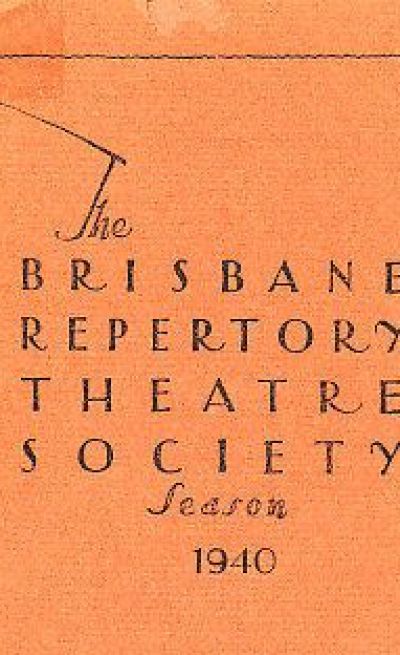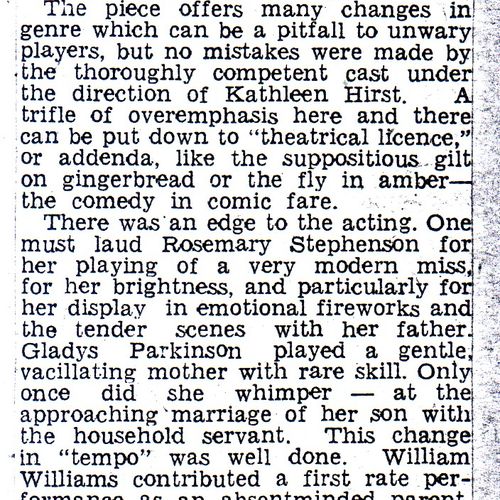George and Margaret
George and Margaret, performed last night by the Repertory Society, is a very clever little comedy by Gerald Savory. Its plot is extremely slight, yet never appears emaciated as do so many plays of this type, a type fashionable on the London stage ever since The Wind and the Rain captured public taste by saying nothing quite pleasantly.
The characters in last night's play really live, and - more important still - are never less than excitingly entertaining. The fact that Kathleen Hirst produced it understandingly and well and that each player gave some meed of pleasure sent an audience out into a cold night warmed both spiritually and physically by laughter.
The only character which savours more of the stage than of real life was that which Gladys Parkinson played with delightfuI humour and skill. Such dithering women may exist, but is there one to every family group, as plays and films would have us believe? The author has shown a deep tenderness between father and daughter. Also, of the two young people who wound each other by violent quarrels it is the girl who recognises the fact that they are in love, facing up to her own self analysis with more honesty and clarity than the man. Sound psychology in both cases.
For the rest, there is fun of the very lightest kind. Rosemary Stevenson's performance again suggests that here is a young actress with a future, perhaps on a bigger stage than Brisbane offers. She can play modern youth quite movingly; its poise and its gaucherie, its frankness and sudden reserves, all were there. She and Gladys Parkinson both appeared to eat a hearty breakfast on the stage, and even skilled professionals often seem to be nibbling and pecking. These are two performances of which we should be very proud.
Len Thiele has a good easy manner but is not always quite audible. J. Steyning-Brown is very promising in a society which has always lacked sufficient personable young men. William Williams had some most diverting lines and spoke them with appreciation and clarity, but a slight monotony of tone. Neville Thiele had an unsympathetic part and was nervous in it; but the fact that his first really sympathetic lines genuinely held the audience, was a feather in his cap. Merle Dinning, by clever gestures and attitudes and one devastating glance, was almost the hit of the show, while Joan Goadby looked the sort of maid to catch the eye of any young man.
Again, it may be asked why a curtain which goes up at 8 minutes past 8 o'clock is advertised for 7.45? Most of us these days can utilise 23 minutes to far better advantage than sitting in a cold theatre regretting that our punctuality has meant foregoing half our evening meal, or finishing that sock for a soldier or making that important phone call. The Repertory Society is old enough to know better.
Reviewer: D. L. Waraker
Telegraph, 5 September 1940


Tell us your story